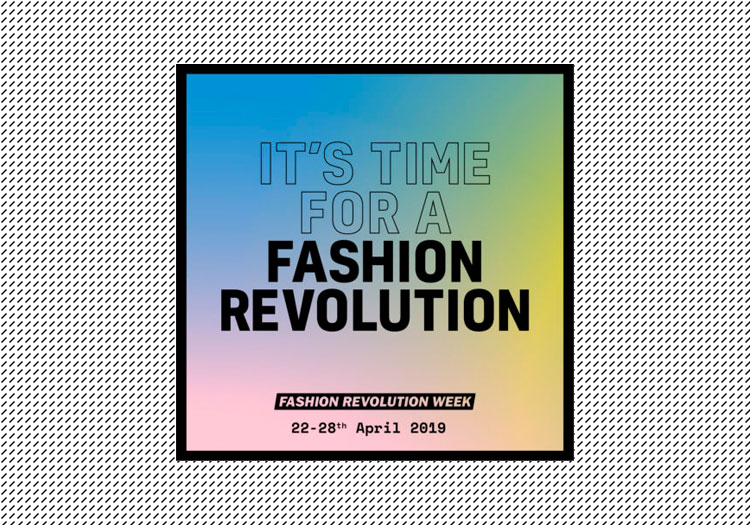While many would say it is a fad – a short lived trend, “Sustainability” seems to be factoring in rather than out in international fashion weeks. More and more brands are thinking what changes they should incorporate in existing systems to make brands eco-friendly. Starting with collections inspired by “Biological” and “Natural” inspirations (flowers, animals, trees and foliages…) to Recycling old garments or rejects of industry into new Green Avataars…. to choosing natural fabrics instead of polyester or acrylic, we can see all in the latest Spring Summer shows of Paris, Milan, London as the Trend of the Trends.
If this was not enough many chose to make the Event of Fashion Week sustainable – holding ramp walk in their own studio, re-use sets of last shows, using natural day light than usual glaring focus lights, to some brands actually NOT showing at all in fashion weeks. NOT showing in actual makes some sense if we calculate the cost of holding such events from one city to another versus the declining numbers of serious buyers that you get to see in front rows.
Some bloggers were of the view that Shows are not interesting any more. The curiosity to see the new collection is affected by actual samples, look book, show-peeks and other material that is sent by brands to influencer home just before the show so as to make social marketing and Instagram posts look perfect !
To counteract media criticism of lavish sets and luxurious model Fashion Weeks have given separate space or slots to Ecologically Positive and Ethical brands. In India, we are still to see how it is interpreted with Fashion weeks still continuing with their same style of holding shows. However, many Indian brands are using natural handwoven and hand printed textiles in their collections when sustainability was nowhere in the International buzz.
Zero C 
Below is a short summary of what SS 2020 offered us:
Stella McCartney presented 70 percent of her SS 2020 collection in recycled polyester, organic cotton, Raffia, hemp and it was termed as the most vegan collection of her career. Particularly noticed were her Vegan Leather shoes. Similarly, Luxury brands Victoria Beckham and Tommy Hilfiger set the bars even higher in sustainability aspects using cruelty-free materials in everything from bags, to hiking shoes and rain boots. Lewis Hamilton was the face of sportswear brand of Tommy Hilfiger as the British sports star also publicized his vegan diet as life-changing experience. T-shirts and Polos of the collection were made from 100% organic cotton and Reversible jackets RE:DOWN (Regenerated and Rejuvenated down).

Stella McCartney’s SS 2020 story – From Plant to Product
Prada is trying to use 90 % of its fabric from sustainable fabrics basket. Milan 2020 fashion week evidenced this shift, but not with a caution. As its creative head Miuccia Prada said –“Ending Consumerism will not be a part of fashion system as yet.. we must be careful about what we say..”.
Fashion giants Versace and Gucci have not used fur in their collection for past many years. And, many are looking forward to vegan leather as an alternative to leather. Animal cruelty is a big “NO NO” in the fashion world now.
Armani created a capsule collection of 100% recycled polyester for its brand Emporio Armani in FW 2020 Milan week. The watches, accessories, shoes and jewelry are also from regenerated or organic materials. Retailers in Milan are more and more into Positive and Green brands as was seen more in menswear collections of 2020.
London Fashion Week 2020 Spring Summer took lead in socially responsible and ethical business front by announcing Queen Elizabeth II award for sustainable and eco-friendly British designer. It is one of the main Fashion Weeks to go “Fur Free” last year.
Many eco-friendly new fashion start-ups were given a special space to emphasize concern for the environment. If one goes to home page of brand VIN + OMI we see top headings talking about ethical practices. Their models are not epitome of perfection in what we understand by “professional” look, rather the shoot looks like a make shift set where apocalypse survivors are posing in front of camera. Some more names to look out for are – RILEY STUDIO, AV, HANNA FIEDLER, and UNAJI.
Many brands are portraying sustainability in fashion by producing collections in home towns rather than through supply chain. For example, Riona Treacy brand is proudly announcing their in-house design and manufacturing in UK with cutting down on plastic packaging totally.
Green Carpet Award in Milan 2020 Fashion week encouraged sustainable brands giving chance to small and young designers working with ethical practices.
Whether sustainability is a conceptual need or a strategy to woo the green concerns of Generation Z only time can tell. For now, we know that brands are adopting this strategy as a USP in international and national media. We hope to see more and more zero C shows in coming years. Or, one could see more of what Swedes did – Cancel the Fashion week 2019 in Stockholm due to sustainability concerns.
Given this volatile global environment we should think seriously about introducing sustainability subjects more in our design curriculum in India.

References:
https://www.forbes.com/sites/joanneshurvell/2019/09/30/sustainable-fashion-brands-dominate-london-fashion-week/#b27647510aeb
Milan Fall/Winter Fashion Week 2020: How sustainable will it be?
https://www.forbes.com/sites/joanneshurvell/2019/09/30/sustainable-fashion-brands-dominate-london-fashion-week/#68856d210aeb
https://www.hannafiedler.com/
http://www.vinandomi.com/
https://rionatreacy.com/
https://www.lofficiel.at/en/fashion-week/stella-mccartney-ss20-sustainable-eco
https://www.businessoffashion.com/articles/intelligence/fashions-long-road-to-inclusivity

